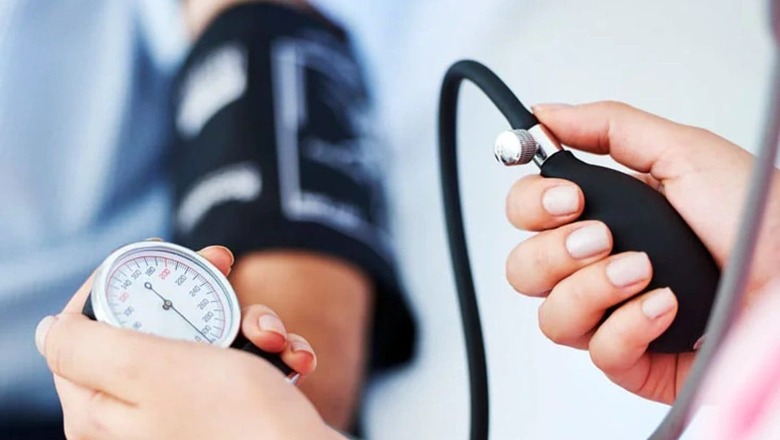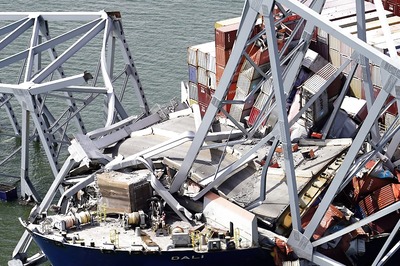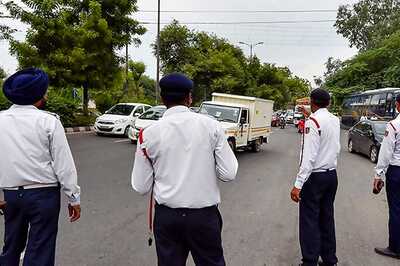
views
A hypertensive crisis refers to a medical emergency characterized by an abrupt and severe increase in blood pressure readings, reaching or exceeding 180/120 mm Hg. This high BP level can disrupt the delicate balance within the cardiovascular system, putting significant strain on vital organs such as the heart, brain, and kidneys. The increased pressure can damage blood vessels, leading to ruptures or blockages, with severe consequences.
In a country like ours (India), most of the symptoms are ignored by people until the situation becomes really critical. Here are a few symptoms that one can look out for high BP-
- Severe Headache:One of the most common symptoms of a hypertensive crisis is an intense and persistent headache that may be accompanied by dizziness and confusion.
- Chest Pain:Chest pain or tightness may occur due to the increased workload on the heart and insufficient oxygen supply.
- Shortness of Breath:The lungs may be affected by fluid buildup due to high blood pressure, causing difficulty in breathing.
- Vision Changes:Blurry vision, visual disturbances, or even temporary vision loss can result from hypertensive crises due to damage to the blood vessels in the eyes.
The reasons for which can range from medication noncompliance (failing to adhere to prescribed antihypertensive medications), underlying Medical Conditions (Chronic kidney disease, hormonal disorders or narrowing of the arteries), substance Abuse (Illicit drugs,l anti-inflammatory drugs or oral contraceptives), stress and lifestyle Factors (chronic stress, excessive salt intake, sedentary lifestyle, obesity, and smoking) among others.
Prevention and Management:
- Monitor Blood Pressure regularly:Regularly checking blood pressure levels can help identify any abnormalities and enable timely intervention or adjustment of medication.
- Adhere to medication:It is essential to follow prescribed antihypertensive regimens consistently.
- Changes in lifestyle:Adopting a healthy lifestyle by incorporating regular exercise, managing stress, maintaining a balanced diet low in sodium, and avoiding smoking and excessive alcohol consumption can help prevent hypertensive crises.
- Routine Check-ups:Regular visits to a doctor/healthcare professional can aid in monitoring blood pressure, identifying risk factors, and managing underlying conditions that contribute to hypertensive crisis.
A hypertensive crisis represents a severe medical emergency necessitating immediate attention and prompt medical attention, when required, can help mitigate the risks.




















Comments
0 comment